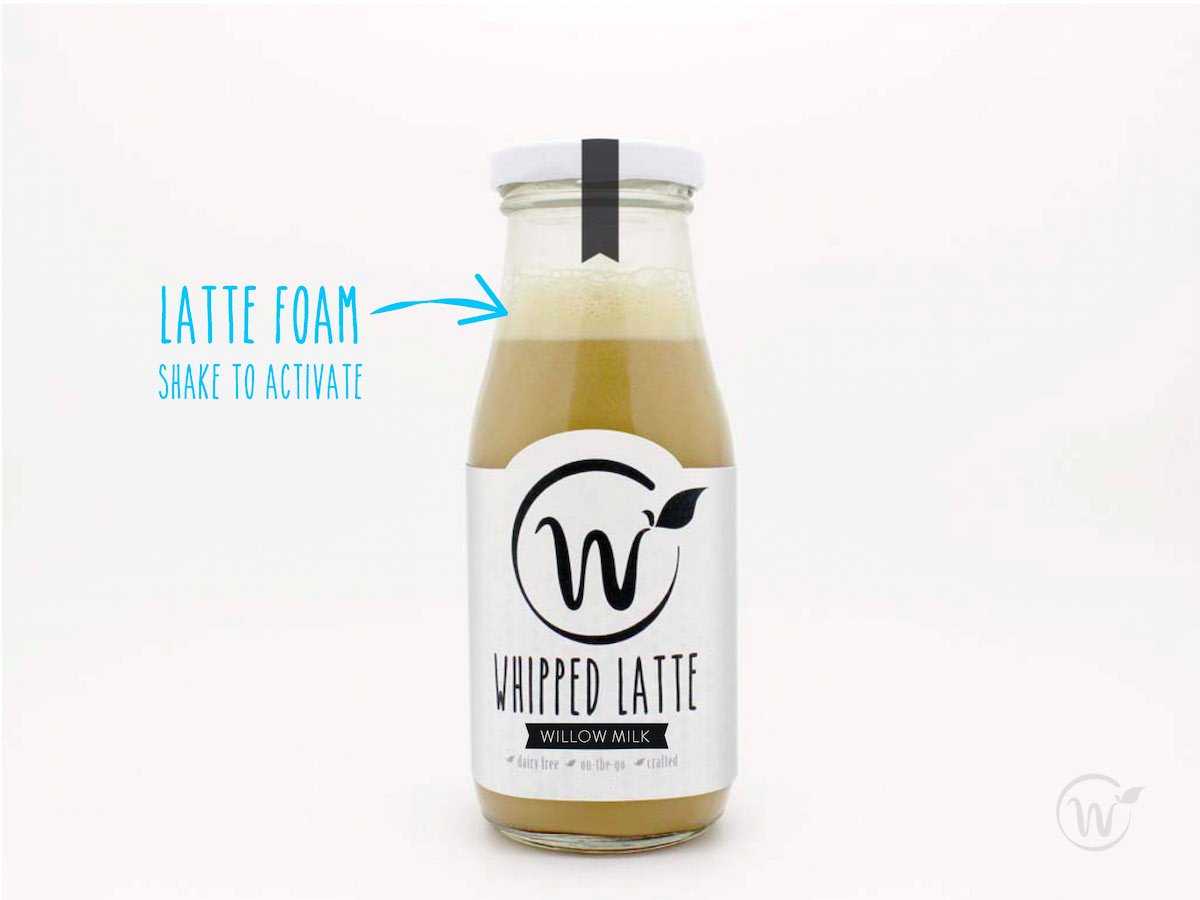There are few things as unappetizing as watching soy milk curdle in a cup of hot coffee. It expands into spindly clusters that look like a coral reef forming in the bottom of your mug. A new San Francisco-based startup believes dairy-lovers deserve better.
Willow Cup is introducing a line of “dairy indulgences” made from plants that, when mixed together in a certain way, supposedly taste almost indistinguishable from real milk.
Their bottled latté drink launches in a dozen Bay Area retail locations later this year, followed by ice creams, frostings, and coffee creamers in grocery stores in 2017.
They all contain the same basic formula of tree nuts, legumes, and other plants, processed in a proprietary way.
After sampling a cup of the Whipped Latté at the IndieBio startup accelerator demo day this week, I was blown away. It foamed when shook, which doesn’t happen with most vegan milks, and tasted only lightly sweet.
I would gladly swap out my Starbucks Frappuccino for a Whipped Latté, knowing it was better for the environment. And as promised, I couldn’t tell the difference between this and cow-made milk.
In 2015, Sara Bonham worked in packaging and operations at General Mills, the parent company behind Betty Crocker, Pillsbury, Cheerios, and most other brands that make you nostalgic for your childhood. She grew annoyed by how slowly innovation moved in the food industry.
“I’m not even vegan,” Bonham, CEO and cofounder of Willow Cup, tells Tech Insider. “Everyone’s always shocked.”
She knew from her research in food science and biological engineering there were better ways of making vegan substitutes.
Willow Cup — part of the latest class at biotech accelerator Indie Bio — extracts proteins from almonds, cashews, potatoes, chickpeas, and other plants and processes them to express a rich, creamy texture.
Their technology breaks down healthy fats in a way that produces a similar molecular structure and consistency to that of cow’s milk.
The combination, Bonham says, is more stable than animal’s milk and won’t curdle in hot coffee like soy.
Each bottled latté will cost about $4, though the company expects to bring down the price once it starts to scale.
“We’re taking the best properties from multiple plants and using our advanced processing techniques to create a product that is on par with dairy products — that truly taste and functions like cow’s milk,” Bonham says.
Willow Cup wants to achieve parity, if not make something even better.
Melia Robinson


















